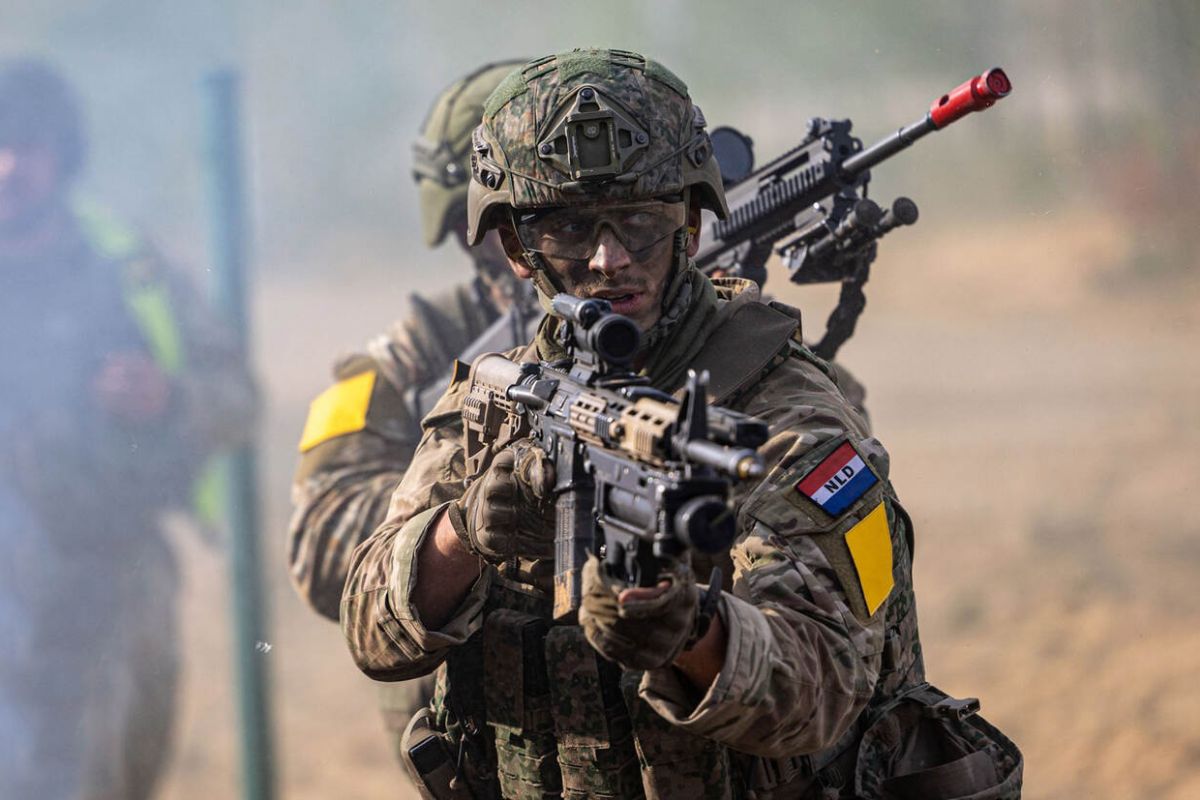
The Dutch Ministry of Defense plans to expand the army from 70,000 to 100,000 personnel by 2030, with provisions for further growth to 200,000 if necessary.
This became known from a letter by the State Secretary for Defence of the Netherlands, Gijs Tuinman, to Parliament, in which he describes the upcoming changes.
According to the letter, the goal is to divide the Dutch armed forces into peacekeeping and military forces by 2027. The scaled-up forces should be fully manned by 2030, or preferably earlier. Initially, this will involve about 100,000 personnel, including professional soldiers, reservists, and civilian staff.
“This isn’t just about quantity, but also about placing the right people with the necessary skills in the right roles on time,” he stated.
It’s important to note that the term “reservist” in the Royal Netherlands Army has a specific meaning. These are individuals who serve part-time in the armed forces, often balancing civilian work or studies. However, if necessary, they can be called up for active duty as regular soldiers.

In addition, by 2027, the foundation for further growth should be established within the existing budget. This expansion will be crucial in a crisis or wartime scenario, or in preparation for such situations.
The Ministry of Defense estimates that the army will need up to 200,000 personnel, though the scale of expansion will depend on the defense budget available at the time. The expansion’s viability will be determined by the financial resources allocated to the armed forces.
It’s also noted that developing the military requires broad organizational changes. Continued optimization of current processes will not be sufficient. A new approach is required: transforming the army from one designed for individual missions abroad to a force that is always ready for rapid deployment.
This new model will have the following characteristics:
The army’s structure will be adapted to remain constantly ready for deployment.
The new structure will rely heavily on reservists, who will need to undergo regular training.
To speed up the process, the training system will need to be modernized, with expanded opportunities for training.

In the short term, this will require involving reserve soldiers in training. The main objective, at least in the next few years, will be to train and enhance the mobilization potential far more than is currently done.
However, the Tuinman has expressed opposition to reintroducing compulsory military service. He believes that the focus should be on high-quality recruitment, with work in the defense sector being attractive in all respects.
In October 2024, it was announced that the Netherlands and Belgium would jointly establish a naval special operations task force to conduct global operations.
The Combined Maritime Special Operations Task Force (C-SOMTG) will be operational starting in 2025. As part of this initiative, the two countries will train together, share courses, and jointly procure special forces equipment.
Підтримати нас можна через:
Приват: 5169 3351 0164 7408 PayPal - [email protected] Стати нашим патроном за лінком ⬇
Subscribe to our newsletter
or on ours Telegram
Thank you!!
You are subscribed to our newsletter